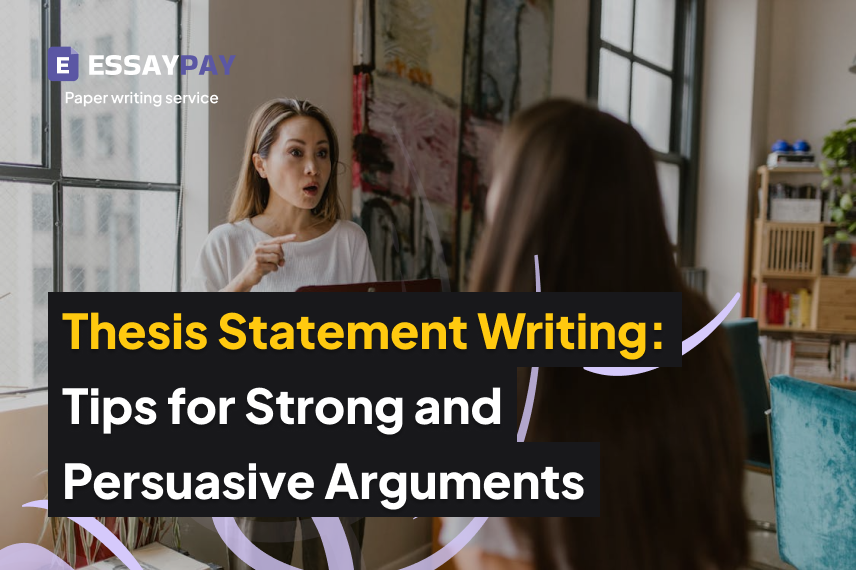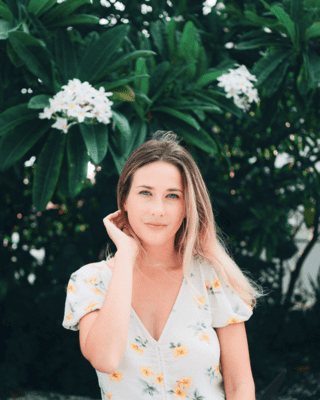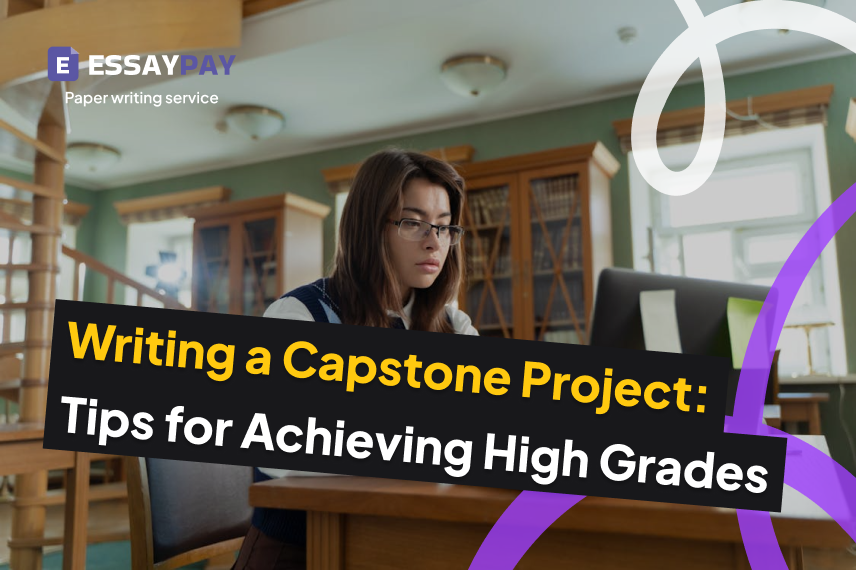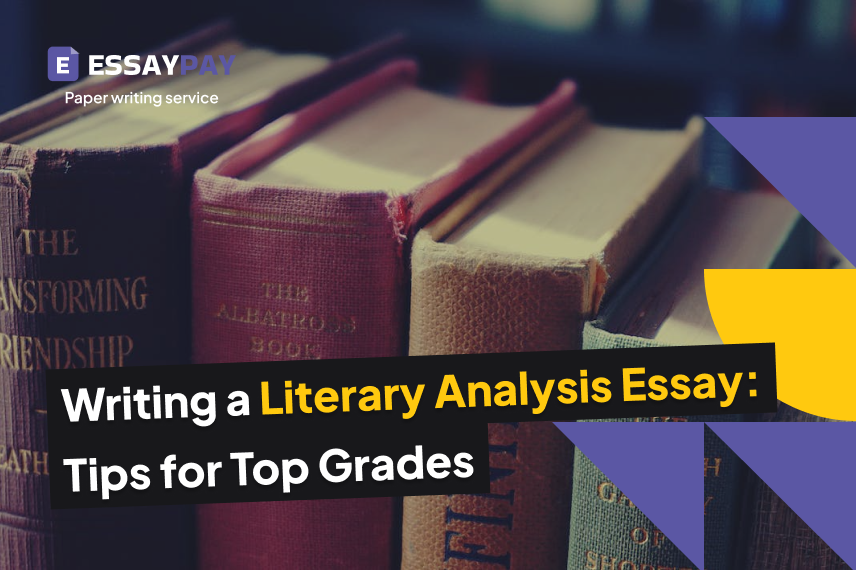Every essay starts with a spark. Sometimes that spark comes from an idea you’ve been mulling over for weeks; sometimes it comes from a random headline on CNN at 2 a.m. But the moment your essay finds its backbone – the thing that holds every paragraph together – is when the thesis statement appears. If students could bottle the power of a strong thesis statement, college professors would be out of a job, or at least slightly less intimidating.
Writing a thesis statement isn’t some mystical academic rite of passage. It’s less “alchemy” and more “strategic decision-making.” Yet, so many students struggle. And honestly, that struggle isn’t entirely their fault. No one taught them that a thesis is simultaneously a compass, a spotlight, and a magnet – it guides your essay, highlights your argument, and pulls the reader along with you.
Here’s the thing: the thesis statement isn’t just a sentence at the beginning of an essay. It’s the reason your essay exists.
What is a Thesis Statement?
At its core, a thesis statement is a concise summary of your main argument or claim. Imagine you’re pitching your essay to someone in the span of one coffee break. That pitch – crisp, compelling, and specific – is your thesis.
It is not a vague observation, a fact anyone could Google, or a personal preference. Saying, “I like chocolate” isn’t a thesis. Saying, “The rising popularity of artisanal chocolate is reshaping consumer behavior, demonstrating a shift from mass production to experiential indulgence” – now, that’s a thesis.
Key characteristics of a strong thesis statement:
| Characteristic | Why it matters |
| Specificity | Narrowing your focus keeps the essay coherent. |
| Arguable | Someone should reasonably be able to disagree. |
| Clarity | Readers should instantly understand your stance. |
| Conciseness | Ideally, one or two sentences. |
A thesis doesn’t just live in isolation. It breathes life into every paragraph, ensuring your essay isn’t wandering into dead ends or tangents.
How Long Should a Thesis Statement Be?
Length is a surprisingly tricky thing. Most guides suggest one to two sentences, roughly 20–40 words. But honestly, the number isn’t what matters; the function does. Some arguments are complex and may require a slightly longer sentence, while others need only a razor-sharp single line.
For example, in an argumentative essay about climate change policies, a thesis could be:
“While renewable energy adoption is crucial for combating climate change, without comprehensive government regulation, market forces alone will fail to reduce carbon emissions effectively.”
That’s two sentences, 32 words, and it tells the reader exactly what the essay will argue. Students often worry about word count in the thesis itself, but the essay’s strength is in clarity and direction, not fluff.
How to Start a Thesis Statement
Starting a thesis statement isn’t a magic formula, though teachers often make it feel that way. One approach is to start with the question your essay answers. Consider the assignment prompt: what’s being asked, and what’s your answer?
For example:
- Prompt: “Discuss the impact of social media on youth culture.”
- Thesis start: “Social media has transformed youth culture by shaping identity formation, peer relationships, and self-expression, but these changes are not uniformly positive.”
Notice the structure: it acknowledges the question, stakes a claim, and hints at the essay’s roadmap. Transition words for argumentative essays – such as however, moreover, consequently – often appear later, but even in your thesis, phrasing can signal direction: “although,” “while,” or “because” are subtle hints that your argument will be layered.
Where Does the Thesis Statement Go?
Placement is surprisingly important. Traditional advice says it goes at the end of the introduction, and for good reason. By this point, you’ve warmed up your reader, introduced context, and now you’re ready to say: “Here’s what I’m arguing.”
But placement can be flexible. Some essays, especially in narrative or reflective argumentative essays, might open with a provocative thesis at the very start. The key is visibility: the reader shouldn’t have to hunt for your claim. Every paragraph should eventually loop back to it.
Can a Thesis Statement Be a Question?
Technically, yes, but tread carefully. Starting your thesis with a question can engage curiosity, but it’s often weaker than a declarative statement. A thesis is strongest when it asserts an argument, not just asks one.
Example:
- Question version: “Does social media positively influence youth culture?”
- Stronger version: “Social media positively influences youth culture by fostering creativity and connection, but it also exacerbates anxiety and comparison among adolescents.”
The second version clearly stakes a position while still acknowledging complexity.
What is the Purpose of a Thesis Statement?
Think of the thesis as your essay’s operating system. It:
- Defines the scope: Signals what’s in and what’s out.
- Guides the argument: Every paragraph is a supporting function of the main claim.
- Engages the reader: Offers a roadmap and promises insight.
- Holds the essay together: Without it, essays meander.
A thesis is not decorative; it’s functional. It’s like hiring a crew for a complex project. If everyone knows their role, the output is coherent. Without it, the essay collapses into fragmented thoughts – a phenomenon anyone who’s read the first page of a 1000 word essay outline has seen.
Tips for Crafting Strong Thesis Statements
1. Start With What You Know
Students often think the thesis comes last. Sometimes it does. But sometimes, it emerges from your initial reflection and research. If you’re struggling, jot down your position on the topic in one sentence. Don’t overthink grammar yet.
2. Think Argumentatively
An argumentative thesis should invite debate. Ask yourself: “Could someone reasonably disagree?” If the answer is no, it’s more of a statement of fact than an argument.
3. Use Precise Language
Avoid vague terms. Words like “good,” “bad,” “important” are traps. Instead, be specific: “inefficient, transformative, manipulative, influential.”
4. Don’t Fear Complexity
A strong thesis can acknowledge contradictions or limitations. Example: “While remote work increases productivity for many employees, it simultaneously risks eroding workplace culture and team cohesion.”
5. Test It With Examples
Imagine explaining your thesis to someone without context. If it makes sense and sparks questions, you’re on the right track.
6. Revisit Often
Thesis statements evolve. As research unfolds, or as you start writing, your thesis may need fine-tuning. That’s normal – flexibility is part of strategy.
Tools and Resources Students Use
Experienced essay writers often hire argumentative essay writers to see examples of strong theses. While that’s not a substitute for practice, it demystifies structure and argumentation. Other useful resources include:
- Transition words for argumentative essays: words like therefore, although, in contrast help thesis ideas flow into supporting paragraphs.
- Essay outline templates: these give students a visual roadmap of where each thesis-related argument fits.
- Most engaging argumentative essay topics: seeing how strong thesis statements work in popular debates can spark originality.
- Essay writing guidebooks: step-by-step guides that walk through the thesis formation process.
Common Mistakes and How to Avoid Them
| Mistake | How to Fix It |
| Too vague | Pinpoint your specific argument and scope. |
| Too long | Break it into a single clear sentence, trim filler. |
| Statement of fact | Ensure the thesis is debatable, not a universal truth. |
| Unrelated to essay content | Align thesis with research and examples. |
| Passive phrasing | Use strong, active verbs to assert your position. |
Real Observations from Experience
In tutoring sessions, it’s striking how often students overcomplicate their thesis. Some write 50-word sentences that spiral into a labyrinth. Others treat it as a formality, tacking it on without thinking. In both cases, the essay suffers.
Reflecting on essays from top students – think of the kind you might see in honors classes at Harvard or Yale – the thesis is almost always:
- Direct
- Insightful
- Confident
- Slightly provocative
For instance, in a debate over corporate responsibility, one student wrote:
“Tesla’s approach to labor practices highlights a tension between innovation and ethics, forcing consumers to choose between admiration for technology and complicity in corporate oversight failures.”
That’s an argument. It’s layered. And it immediately frames the essay in a way that a single question or generic claim never could.
Putting Your Thesis to Work
Writing a thesis statement is more than ticking off a box. It’s a conscious act of framing your thoughts, staking your claim, and inviting others to engage with your ideas. Yes, there are rules and templates. Yes, guides and tutors exist to help. But the real skill comes from practice, reflection, and the courage to take a position – even when it feels risky or unfinished.
In the end, a strong thesis is a little rebellious. It doesn’t apologize. It doesn’t hedge unnecessarily. And it has a pulse. Students who internalize this – who learn not just to construct sentences but to think critically, argue boldly, and reflect deeply – gain an edge that transcends any single essay.
So, start your thesis with curiosity, build it with precision, and refine it with courage. The rest of the essay is just the adventure that follows. And yes, you might occasionally need an essay outline, or consult an argumentative essay writing guide. But nothing replaces the moment when your own mind finally declares: “This is my argument, and here’s why it matters”.
Strengthening Your Thesis Knowledge
1. Can a thesis statement change during the writing process?
Yes. In fact, it often should. As research deepens or ideas develop, the thesis may need refinement. Think of it as a compass: the direction might adjust slightly, but the destination remains. Revising your thesis ensures your essay stays focused and accurate.
2. Should a thesis statement include counterarguments?
Including counterarguments in your thesis isn’t mandatory, but it can make your argument stronger. For example: “While renewable energy adoption faces economic challenges, it remains essential for long-term sustainability.” It signals sophistication without overwhelming the reader.
3. How formal should the language of a thesis statement be?
A thesis should be clear and confident, but it doesn’t have to be overly formal or complex. Avoid jargon unless necessary, and focus on precision. Readers appreciate a thesis they can immediately understand.
4. Can a thesis statement be humorous or unconventional?
Occasionally, yes — especially in essays that allow creativity. Humor or unconventional phrasing can engage the reader, but it must still communicate your argument clearly. Risky humor should never obscure your point.
5. How do visual or digital essays handle thesis statements?
In multimedia or digital essays, the thesis can appear as a caption, slide, or opening statement. The principle is the same: the reader should know the central claim early, even if it’s delivered through images, charts, or video narration.
6. How does a thesis statement differ in persuasive vs. analytical essays?
In persuasive essays, the thesis pushes a position and seeks to convince. In analytical essays, the thesis often evaluates or interprets evidence rather than persuading outright. Both require clarity, but the intent shifts.
7. Can a thesis statement cite a source?
Direct citations are uncommon in thesis statements. However, referencing well-known facts or frameworks briefly can add credibility: e.g., “According to UN climate reports, immediate carbon reduction policies are essential to prevent irreversible damage.”
8. Should a thesis statement ever include multiple ideas?
Yes, but cautiously. You can hint at complexity by connecting two related claims, as long as it doesn’t confuse the reader. The goal is coherence, not cramming every idea into one sentence.
9. How can a thesis statement improve essay transitions?
A well-crafted thesis gives each paragraph a reference point. By aligning topic sentences with the thesis, transitions become smoother and your essay reads logically. Essentially, the thesis is a roadmap for both writer and reader.
10. Are there tools or software that help create strong thesis statements?
Yes, several digital tools offer guidance. For example:
- Grammarly can suggest clarity improvements.
- Hemingway Editor ensures concise phrasing.
- Mind-mapping tools like XMind help visually connect ideas before forming a thesis.
While helpful, these tools should supplement critical thinking, not replace it.




